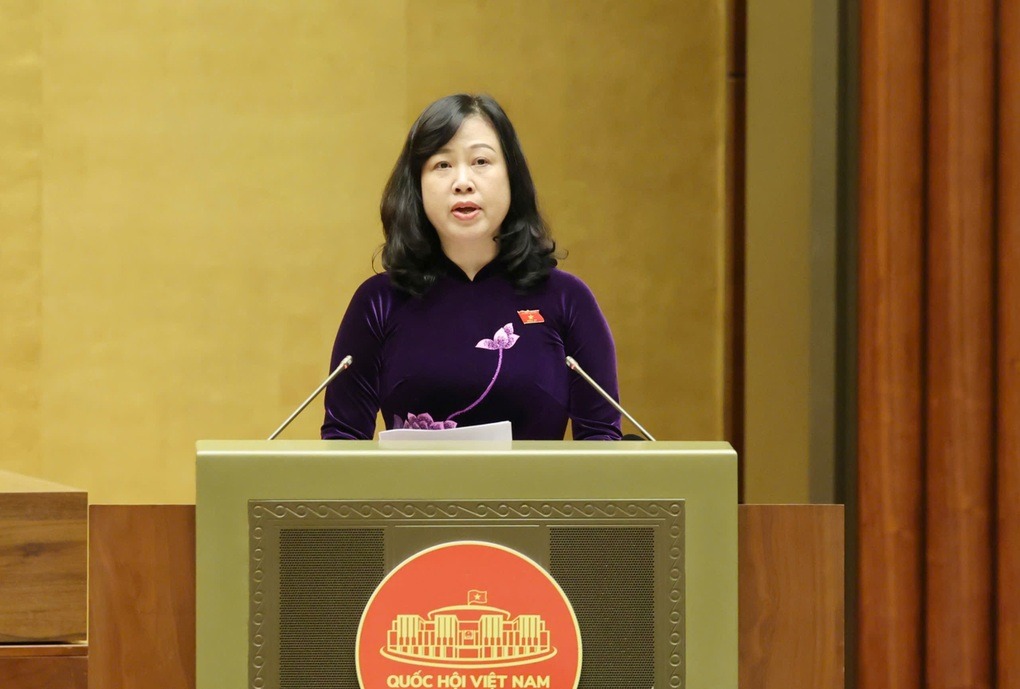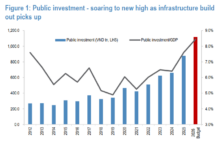On October 23rd, during the 10th session of the National Assembly, Minister of Health Dao Hong Lan, authorized by the Prime Minister, presented the Population Law project. The draft law proposes policies prioritizing social housing purchases.

Minister of Health Dao Hong Lan presenting the proposal to the National Assembly. Photo: Pham Thang
The government’s proposal highlights that from 2006 to 2021, Vietnam achieved and maintained the replacement fertility rate, sustaining appropriate population growth. By 2024, the population reached 101.1 million. Vietnam is currently in its demographic golden age, offering significant advantages for socio-economic development. Population quality and the Human Development Index (HDI) have steadily improved, with life expectancy increasing.
However, the government notes that some population-related legal provisions are no longer aligned with current realities and fail to meet new demands in population management.
Emerging population issues require urgent attention, including a declining national birth rate below the replacement level, gender imbalance, and insufficient population quality.
Minister Dao Hong Lan attributed these challenges to inadequate awareness among some Party committees and authorities regarding population work. Communication and advocacy efforts to raise awareness remain limited, leaving many areas heavily influenced by gender biases.
To address these gaps, the draft law introduces provisions to maintain the replacement fertility rate, extend maternity leave, provide financial support for childbirth, and prioritize access to social housing under the Housing Law.
Specifically, maternity leave for the second child is extended by one month for women and five working days for men whose wives give birth. Financial support is offered to ethnic minority women, women having their second child before 35, and those in low-fertility areas.
The draft law also prioritizes social housing access for women with two children or men with two children without a spouse or whose spouse has deceased. The government will specify support details and minimum levels.
Local authorities will determine support eligibility, content, and levels based on socio-economic conditions and budget capabilities. Measures to sustain the replacement fertility rate and expand beneficiary groups are also included.
The Minister of Health noted new provisions to reduce gender imbalance at birth and restore a natural gender ratio.
The draft law prohibits gender selection during pregnancy, except for diagnosing and treating gender-related genetic disorders. It encourages community conventions to promote gender equality and discourage gender-based preferences. Medical professionals disclosing fetal gender information, except for approved medical reasons, will face suspension.
Nguyen Dac Vinh, Chairman of the National Assembly’s Culture and Society Committee, suggested comprehensive measures for sustainable replacement fertility. He proposed higher financial support for women having two children before 35 and clarified criteria for “low-fertility areas.”
The Committee recommended revising the Housing Law to ensure feasible social housing access for targeted groups. It also suggested regular government reports on fertility rates to guide local policies and timely interventions for critically low fertility areas.
Motorola Makes a Triumphant Return to the Vietnamese Market
In November, the company will unveil a range of mobile products in the Vietnamese market, including the Razr, Edge, and Moto g series.













































